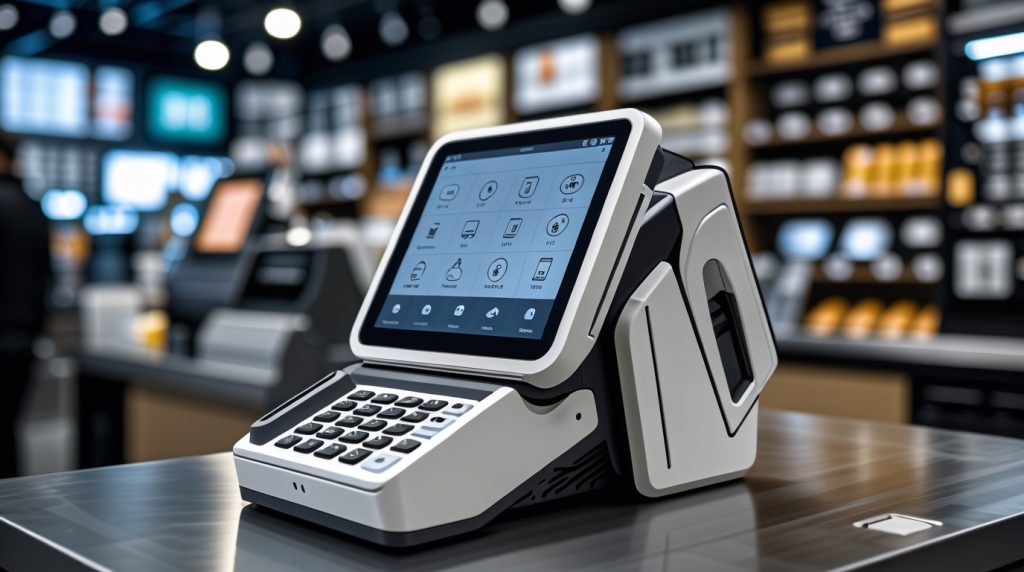Introduction
Zimbabwe’s retail sector is poised for growth in 2025, with projections estimating a 5.10% expansion despite economic challenges such as liquidity constraints, regulatory burdens, and competition from informal trade. To thrive in this dynamic environment, retail businesses must adopt advanced technologies that improve operational efficiency, customer experience, and regulatory compliance. Enterprise Resource Planning (ERP) software tailored for retail is a critical tool for achieving these goals.
This article examines the top ERP software solutions to consider for the retail sector in Zimbabwe in 2025, focusing on features like cloud computing, AI integration, real-time analytics, and omnichannel capabilities that are transforming retail operations.
Why ERP Software Matters for Zimbabwe’s Retail Sector
Retail businesses in Zimbabwe face unique challenges including fluctuating currency values, complex supply chains, and evolving consumer preferences. ERP software centralizes core business functions-inventory, sales, finance, and customer management-into one platform, enabling retailers to:
- Streamline operations and reduce manual errors
- Improve inventory accuracy and reduce stockouts
- Enhance customer engagement through integrated CRM
- Ensure compliance with local tax and regulatory requirements
- Gain real-time data insights for faster decision-making
As the retail sector contributes nearly 19% to Zimbabwe’s GDP and continues to grow, ERP adoption becomes a strategic imperative.
Top ERP Software Solutions for Zimbabwe Retail
1. Acumatica Cloud ERP
Acumatica is a cloud-based ERP solution gaining traction in Zimbabwe for its flexibility and comprehensive retail features. It supports small to medium-sized retailers with a focus on scalability and integration.
Key Features:
- Cloud-based Access: Enables real-time data access from anywhere, reducing IT infrastructure costs.
- Multi-Channel Sales Integration: Seamlessly connects in-store and online sales channels.
- Inventory and Warehouse Management: Real-time tracking and automated replenishment.
- Order Processing: Streamlined order management from purchase to delivery.
- Customer Relationship Management (CRM): Integrated tools to enhance customer loyalty and marketing.
- Financial Management: Automated accounting processes aligned with Zimbabwean tax laws.
Benefits:
- Scalable and customizable for growing retailers.
- Reduces operational costs through automation.
- Supports Zimbabwe’s multi-currency environment.
- Local consulting and implementation support available.
2. Microsoft Dynamics 365 Business Central with LS Retail
Microsoft Dynamics 365 Business Central combined with LS Retail is a leading ERP and Point of Sale (POS) solution tailored for retail chains and FMCG businesses in Zimbabwe7.
Key Features:
- Unified Commerce Platform: Integrates financials, operations, and customer engagement.
- Robust POS System: Supports multiple store locations with real-time sales and inventory updates.
- Supply Chain Optimization: Advanced forecasting and procurement management.
- Mobile and Cloud Access: Enables management on the go.
- Compliance and Reporting: Built-in tools for tax compliance and detailed analytics.
- Industry-Specific Modules: Solutions for apparel, quick service restaurants, and meat industries.
Benefits:
- Ideal for medium to large retail chains.
- Enhances customer experience with omnichannel capabilities.
- Provides detailed operational insights to optimize business performance.
- Supported by local technology providers like Vlamstro Technologies.
3. Odoo ERP
Odoo is a modular, open-source ERP system popular for its flexibility and cost-effectiveness. It offers a wide range of applications that can be tailored to retail business needs.
Key Features:
- Modular Design: Choose from inventory, sales, accounting, CRM, and e-commerce modules.
- Inventory Management: Automated stock tracking and replenishment.
- POS Integration: Supports both online and physical store sales.
- Accounting and Tax Compliance: Tools to manage Zimbabwean tax requirements.
- E-commerce Integration: Connects retail stores with online marketplaces.
- User-Friendly Interface: Easy to customize and use without extensive IT expertise.
Benefits:
- Affordable for small and medium retailers.
- Highly customizable to specific retail workflows.
- Strong community and local partner support.
- Cloud and on-premise deployment options.
Emerging ERP Trends Shaping Zimbabwe Retail in 2025
Cloud-Based ERP Solutions
Cloud ERP systems like Acumatica and Microsoft Dynamics 365 provide Zimbabwean retailers with scalability, flexibility, and cost savings. They eliminate the need for heavy IT infrastructure and enable real-time access to business data from any location.
AI and Machine Learning Integration
AI-powered ERP software enhances decision-making by offering predictive analytics, automated inventory management, and personalized customer experiences. Retailers can optimize pricing strategies and automate routine tasks, reducing operational costs.
Real-Time Data and Analytics
Real-time analytics enable retailers to monitor sales trends, forecast demand, and manage inventory more effectively. This visibility helps reduce stockouts and overstock situations, improving profitability and customer satisfaction.
Omnichannel Retail Integration
ERP systems now unify online and offline sales channels, providing consistent pricing, inventory visibility, and customer experience across platforms. This integration is essential as Zimbabwean consumers increasingly shop across multiple channels.
Enhanced Cybersecurity
With increased digitalization, ERP systems incorporate advanced security features such as AI-driven threat detection, encrypted transactions, and multi-factor authentication to protect sensitive data.
How to Choose the Right ERP Software for Your Retail Business
When selecting an ERP system for retail in Zimbabwe, consider the following:
- Business Size and Complexity: Larger retail chains may require comprehensive solutions like Microsoft Dynamics 365, while SMEs might benefit from flexible options like Acumatica or Odoo.
- Local Compliance: Ensure the ERP supports Zimbabwean tax laws, including VAT, PAYE, and multi-currency transactions.
- Integration Needs: Look for seamless integration with existing POS, accounting, and e-commerce platforms.
- Scalability: Choose software that can grow with your business and handle multiple locations.
- User Experience: A user-friendly interface reduces training time and increases adoption.
- Support and Training: Local consulting and support services are critical for smooth implementation and ongoing assistance.
- Cost: Balance features with budget, considering licensing, implementation, and maintenance costs.
The Future Outlook for Zimbabwe Retail ERP
As Zimbabwe’s retail sector grows and modernizes, ERP software will play a pivotal role in enabling businesses to compete effectively. The government’s efforts to reduce regulatory burdens and support economic development will create a more conducive environment for digital transformation.
Retailers who adopt ERP solutions with cloud infrastructure, AI capabilities, and omnichannel integration will gain a competitive edge by improving operational efficiency, enhancing customer experiences, and responding quickly to market changes.
Conclusion
Zimbabwe’s retail sector is on a growth trajectory in 2025, but success depends on embracing technology that addresses operational challenges and customer expectations. ERP software solutions like Acumatica Cloud ERP, Microsoft Dynamics 365 Business Central with LS Retail, and Odoo offer powerful tools to optimize retail operations, ensure compliance, and drive growth.




